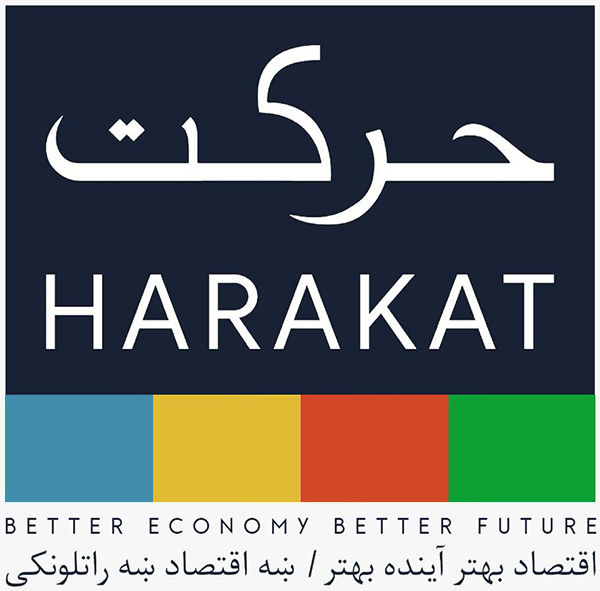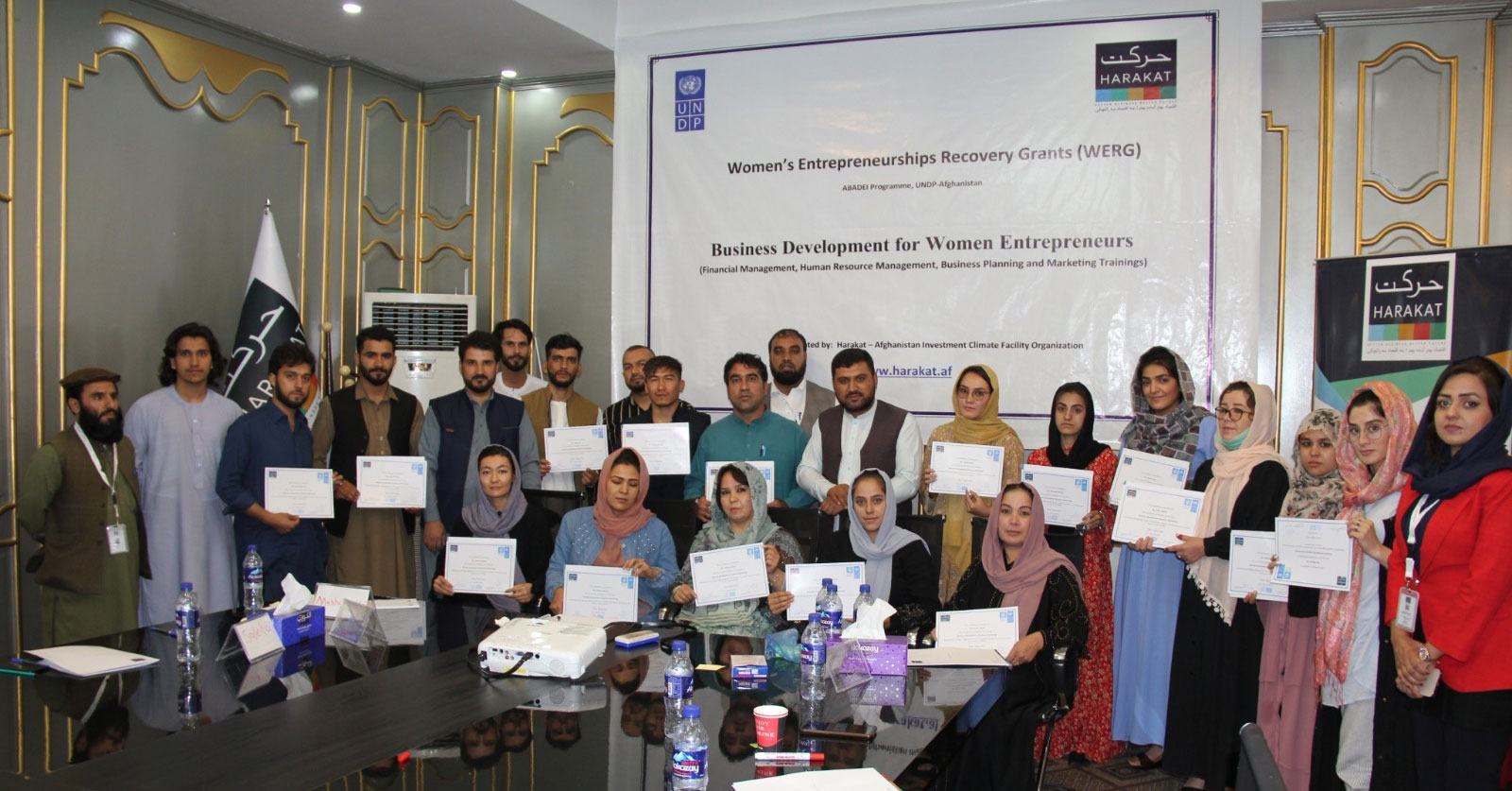Achievements
SME Business Development Project
Support the development of small and medium-sized enterprises (SMEs) for internally displaced women in Kabul and Nangarhar provinces in collaboration with NOVE Onlus and UN Women. The project will empower displaced females by providing skills training and small grants to establish income-generating activities in Kabul and Nangarhar provinces.
Private Sector Advocacy Platform
Establishing a platform for private-sector-driven advocacy, supported by IFC, to create and sustain a strong, unified voice that speaks up for the private sector’s most urgent issues and to increase investment in the Afghan economy.
Promoting Access to Markets for Businesses
Supported the growth of women-owned and youth-led enterprises through access to training, grants, and business development services, contributing to women's and youth economic empowerment in Kabul, Parwan, and Wardak provinces.
National Private Sector Consultation
Undertook a comprehensive series of consultation meetings with private sector stakeholders, supported by the IFC, proposing concrete solutions to challenges they face that resulted in establishing a national platform to advocate for the sustained growth of the private sector.
Women’s Entrepreneurship Recovery Grant (WERG
Support women entrepreneurs in recovering from the challenges posed by economic disruptions due to social and political transitions in partnership with UNDP. Harakat assisted vulnerable entrepreneurs at risk of losing their businesses with small business recovery grants, business development services, and technical training.
From 2019 to 2021, Harakat strategically directed its efforts towards key focus areas, including trade and transit, public-private partnership and dialogue, investment facilitation, legal and regulatory reform, and women's economic inclusion.
Trade & Transit
Harakat analyzed trade and transit issues in Afghanistan to identify and overcome constraints hindering Afghan exports and supported implementing a coherent trade policy within the region.
- Provided Technical assistance to the Ministry of Commerce to support Afghanistan-Pakistan trade facilitation meetings.
- Conducted research and shared expert opinion on revising the Afghanistan-Pakistan Trade and Transit Agreement (APTTA).
- Organizing regional Public Private Dialogues (PPDs) to promote regional connectivity and boost trade.
Public Private Partnership
Harakat partnered with the Ministry of Finance to remove bottlenecks, address technical gaps, and streamline the PPP processes by providing technical assistance and conducting economic viability studies for two significant PPP projects.
- Created an investment portal for PPP opportunities, improving transparency and access to project details.
- Organized an investment promotion event in the UAE,
- Trained 35 CPA staff to conduct studies and sustainably manage PPP procurement processes in Afghanistan.
Public Private Dialogue
Harkat supported the establishment of a single and robust Public-Private Dialogue (PPD) platform, the Private Sector Executive Committee (PriSEC), between the government and the private sector to foster an open and constructive communication intended for Ministries to address the identified barriers effectively.
- Planned PPD events in Kabul and other regions to address 30 barriers to business confidence with key stakeholders.
- Created a roadmap outlining the necessary steps to tackle these barriers and to promote a more conducive business environment.
Investment Facilitation
Harakat supported the government’s efforts to increase investor confidence by introducing mechanisms to safeguard investor rights. These reforms helped strengthen the private sector's confidence, creating new jobs, growing the economy, and promoting regional cooperation.
- Developed 11 reform priorities from the private sector adopted by the government.
- Supported the establishment of One Stop Shop, Asan Khedmat, to provide support and assistance at every level for investors.
Legal and Regulatory Reform
Harakat supported the Ministry of Commerce and Industries (MOCI) commitment to improve Afghanistan’s legal and regulatory environment. The goal was to simplify business processes, including starting a business, dealing with construction permits, getting electricity, registering property, getting credit, protecting minority investors, paying taxes, trading across borders, enforcing contracts, and resolving insolvency.
- Improved regulations and capacity of relevant stakeholders in line Ministries to enforce regulations.
- Developed nine policies, regulations, and policy frameworks in collaboration with the Ministry of Justice, Finance, and Commerce.
Women’s Economic Inclusion
Coordinated with the Afghan Women’s Chamber of Commerce International (AWCCI) to provide business training opportunities to female SMEs.
- Harakat establishes the Business Integrity Network Afghanistan.
- Afghanistan Artisan Toolkit helps artisans nationwide with quality control and management practices to attract foreign markets for Afghan products.
- Harakat develops necessary regulations, policies, and procedures to implement the Mortgage Law efficiently.
- Harakat develops the Consumer Protection Regulatory Framework.
- Harakat establishes a computer-based central registry of property deeds and land records.
- Harakat develops Afghanistan Building Codes for the construction sector.
- Harakat develops 40 National Occupational Skills Standards in five sectors.
- Harakat and its partners establish the Shariah Supervisory Board to oversee Islamic banking in Afghanistan.
- Harakat develops Afghanistan’s first National Trade Policy.
- Harakat establishes the Afghanistan Center for Dispute Resolution.
- Harakat develops strategic operating documents to guide activities.
- Harakat helps establish a legal, regulatory, and institutional framework for Public-Private Partnerships.
- Harakat establishes One Stop Shop for business registration and licensing at the Ministry of Commerce.
- Harakat establishes an intellectual property automation system for the Afghanistan Patent and Trademark Office.
- Harakat establishes Efshagar – whistle-blowing channels to report on corruption and bribery.
- Harakat establishes the Economic Journalists Association Afghanistan.
- Harakat amends Competition Law.
Harakat establishes a Land Lease and One-Stop-Window.
- Harakat establishes the Export Information Call Center.
- Harakat undertakes several research projects to address barriers to investment and doing business in Afghanistan.
- Harakat established the first School of Accounting in Afghanistan to train Chartered Accountants
- Harakat establishes the first Public Credit Registry in Afghanistan
- Harakat develops national standards, manuals, and training for National Standard Development
- Harakat assists AIBF in signing a partnership agreement with the Bangladesh Institute of Bank Management
- Harakat helps reform the Small Taxpayers Office Reform
- Launch of Harakat
- Harakat and its partners established the first collateral registry in Afghanistan.
- Harakat establishes a secured computer-based central registry for property deeds.
World Bank and Aga Khan hold the Enabling Environment Conference, laying the groundwork for Harakat.


